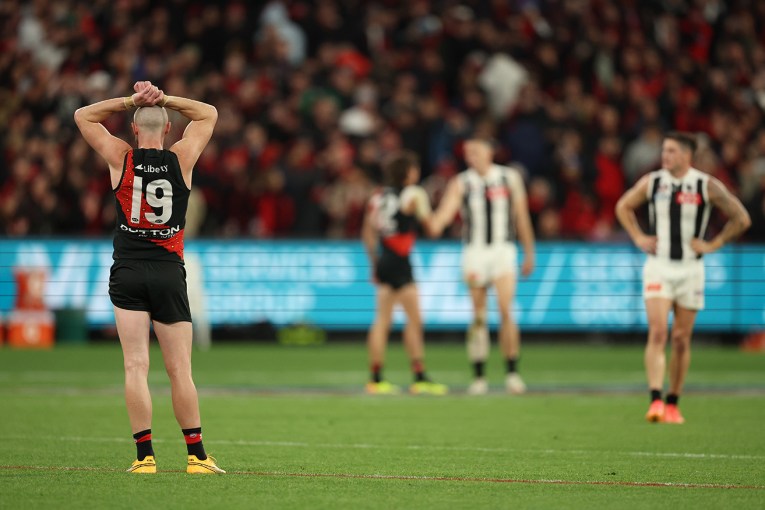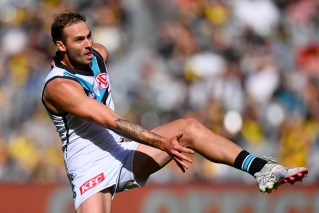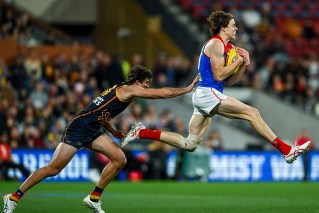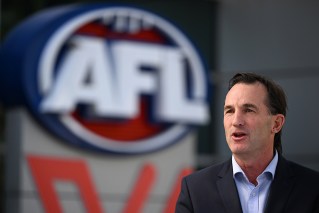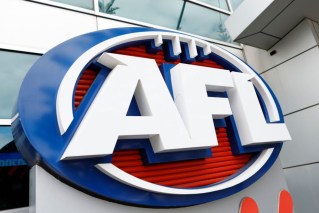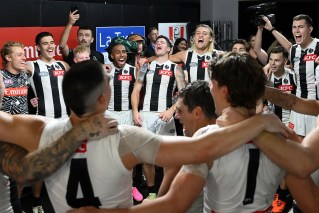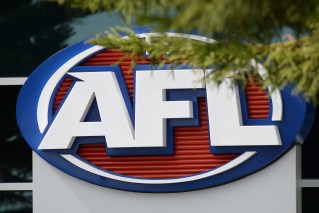Legal threat: how the Essendon 34 could proceed
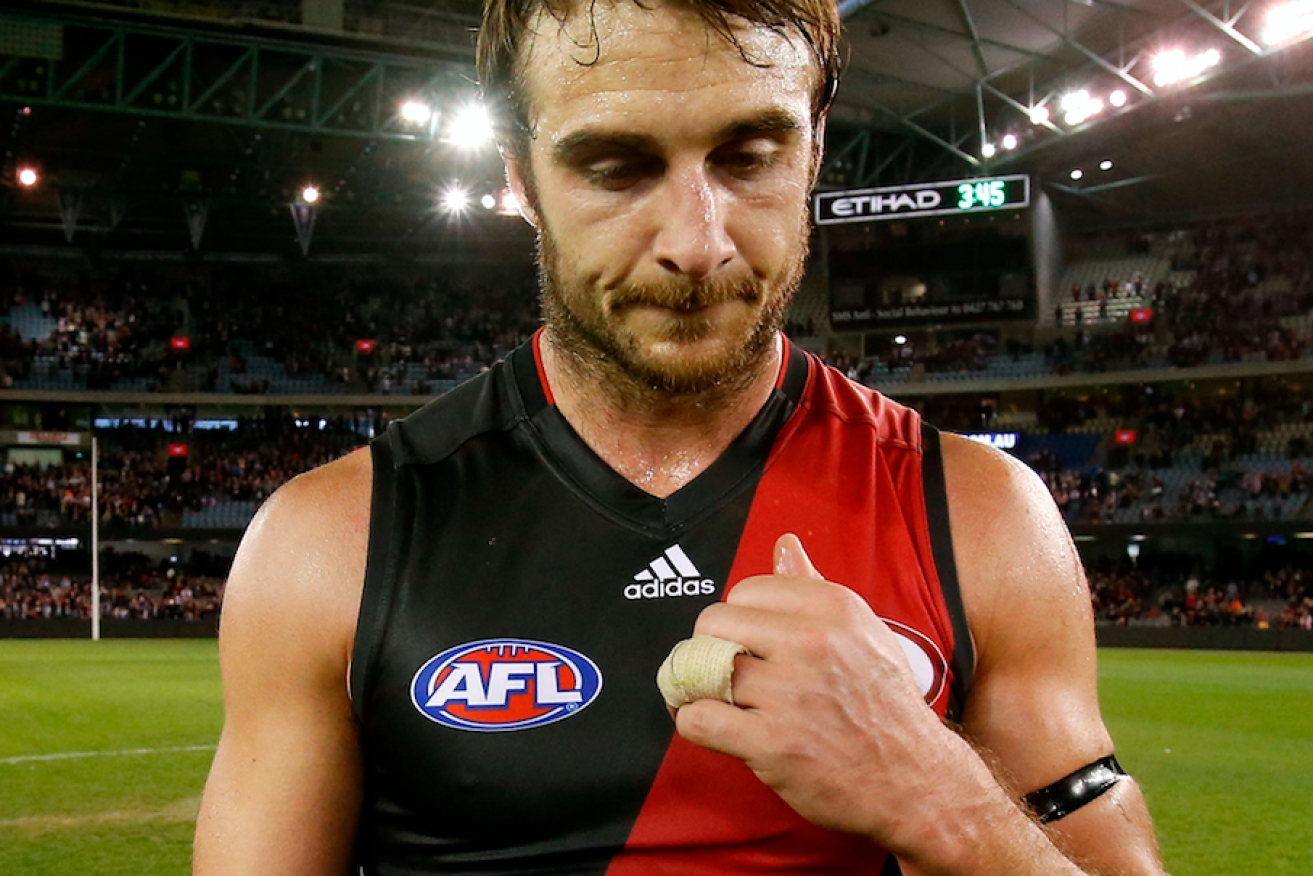
Watson's intentions are unclear. Photo: Getty
After more than three years of being dragged before courts and tribunals, Essendon and its 34 former and current players banned for taking performance-enhancing drugs seem destined for further legal battles.
In Tuesday’s verdict, the Court of Arbitration for Sport (CAS) upheld an appeal by the World Anti-Doping Agency, effectively banning 34 players for the 2016 season, after they were originally cleared of wrongdoing by an AFL Anti-Doping Tribunal.
• Essendon says verdict to ban players ‘manifestly unfair’
• Matthew Lloyd: ‘I feel sick in the stomach’
• Guilty verdict an absolute disaster for AFL
• Essendon’s timeline of turmoil
AFL Players’ Association boss Paul Marsh was the first to warn of further litigation, saying in a press conference on Tuesday that there was a “very high” likelihood players would take legal action against the club.
However he indicated he would prefer to see compensation from the club settled without the need for the courts.
“[But] if you can’t, then legal action is something that you look at,” Mr Marsh said.
Action against the Bombers? Highly likely
Mr Marsh’s assertions were then eclipsed by AFL player manager Peter Jess, whose client Nathan Lovett-Murray (no longer in the AFL) was one of the banned 34.
“I’ve spoken to Nathan Lovett-Murray – he is now a coach of a club in a minor league but by virtue of that he now has to forgo his employment, which is a significant impairment on him,” Mr Jess said.
“So he has got no other option but to commence action [against Essendon].”
Monash University senior law lecturer Dr Eric Windholz told The New Daily the players’ best chance of a payout would be from Essendon for a “breach of contract”.

Nathan Lovett-Murray’s manager has indicated he will sue Essendon. Photo: Getty
“The players are [were] employees of the Essendon Football Club and they are employed under an employment contract called the Standard Players Contract,” Dr Windholz said.
“That contract has a clause whereby the club promises to provide the players with a working environment that is safe and without risk to health.
“In proceedings brought by WorkSafe Victoria the Essendon Football Club has plead guilty to breaches of the Occupational Health and Safety Act.
“To my mind that is tantamount to admitting a breach of contract. So I think that is probably the best avenue for the players to pursue.”
In late 2015, Essendon accepted they had breached the Occupational Health and Safety Act in the Victorian Magistrates Court.
The club will be sentenced later this month.
University of Newcastle employment law expert Neil Foster agreed this apparent admission of guilt “may make it easier for the players to succeed in a civil action”.
In a press conference called in response to the CAS decision on Tuesday, Bombers chairman Lindsay Tanner admitted: “This was a collective failing by Essendon Football Club. We, as an organisation, have to take responsibility for that.”
Mr Foster agreed this could be interpreted as admission of guilt by the club, but he added that since it was made by someone who was not at the club at the time of its illegal supplements program, its relevance could be debated in any hypothetical civil action.
A successful appeal? Unlikely
AFL CEO Gillon McLachlan on Tuesday suggested there were avenues of appeal still available against the decision of the Switzerland-based CAS.
Any appeal would be down to the players to pursue, and was a possibility, The Australian reported on Wednesday.

Jobe Watson and the 33 other guilty players can appeal, but would be very unlikely to succeed. Photo: Getty
‘False assurances’ were provided by the club to the players, the newspaper claimed, after senior players intervened and requested more information on injections that formed part of a new supplement program.
Dr Windholz said the players could appeal – despite thinking an avenue for one was not really there – on the question of whether CAS had jurisdiction or if they “breached procedural fairness”.
“Clearly all the parties have accepted CAS’s jurisdiction and its right to hear the matter,” Dr Windholz said.
“The AFL agrees to come under the WADA and CAS jurisdiction because it signs up to be a part of their codes.
“In the hearing the players were all represented by very skilled lawyers. It would be very hard to argue there was a denial of natural justice or procedural fairness.
“While technically speaking an avenue for appeal exists, I am struggling to see where the actual basis to bring that appeal is.”
He also stressed that Essendon was not a party in the case, only the 34 players were, therefore the club could not appeal.
This reason was also why the AFL could not appeal the verdict.

